Various Articles
The Muslims Are of Three Types
- Published at
-
- Author:
- Shaykh Nasir Makarim Shirazi
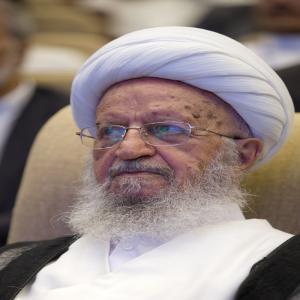
‘Abdullah b. ‘Umar said, “I heard the Messenger of Allah (S) say, 'My nation will be divided into three categories in the transient world. The first group are those who do not like to gather (and save) wealth and (also) do not bother in hoarding it. These people are content with the transient world in that amount which will remove the hunger and clothe the nakedness (the bare necessities of life). Their (true) wealth lies in that which makes them reach the next life. These people shall be protected and upon whom (…shall be no fear, nor shall they grieve.)
The Constitution of the First Islamic Community
- Published at
-
- Author:
- Sayyid Ahmad Rahnamaei
 The formation of the Islamic community dates from the time of the Prophet in Madina. He created a new community there shortly after arriving in this first city-state of Islam. Ibn Ishaq in his Sirat Rasul Allah relates the following passage which is translated by A. Guillaume:
The formation of the Islamic community dates from the time of the Prophet in Madina. He created a new community there shortly after arriving in this first city-state of Islam. Ibn Ishaq in his Sirat Rasul Allah relates the following passage which is translated by A. Guillaume:
The Most Important Issue in the Lives of the Youth
- Published at
-
- Author:
- Ayatullah Ja`far Subhani
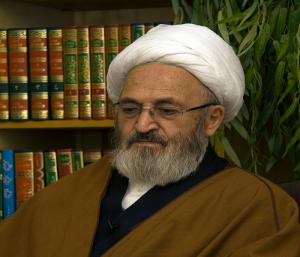 In introducing man as a creature with the ability of thought and contemplation, the Philosophers and great thinkers of the world have relied upon the phrase that man is a rational animal (الحيوان الناطق) - one that possesses intelligence and the ability to perceive things.
In introducing man as a creature with the ability of thought and contemplation, the Philosophers and great thinkers of the world have relied upon the phrase that man is a rational animal (الحيوان الناطق) - one that possesses intelligence and the ability to perceive things.
Five Life Giving Lessons and Refraining from Doubtful Things
- Published at
-
- Author:
- Shaykh Nasir Makarim Shirazi
 The Messenger of Allah (S) has said, “O' mankind! Do not convey wisdom to those people who are not worthy (of receiving such teachings), as you would have done oppression to the wisdom; and do not deprive those people who are worthy of receiving such teachings, as then you would have done oppression to them.
The Messenger of Allah (S) has said, “O' mankind! Do not convey wisdom to those people who are not worthy (of receiving such teachings), as you would have done oppression to the wisdom; and do not deprive those people who are worthy of receiving such teachings, as then you would have done oppression to them.
The Effects of Sins
- Published at
-
- Author:
- Shaykh Nasir Makarim Shirazi
 [Imam Muhammad b. ‘Ali] al-Baqir (as) has said: “There is no servant who sees his Muslim brother in need, however does not help him or tries to alleviate his difficulties, except that he will face a tribulation in that his energies will be expended in an area in which there is no reward for the next life and no reward for the transient world.
[Imam Muhammad b. ‘Ali] al-Baqir (as) has said: “There is no servant who sees his Muslim brother in need, however does not help him or tries to alleviate his difficulties, except that he will face a tribulation in that his energies will be expended in an area in which there is no reward for the next life and no reward for the transient world.
Different Methodological Approaches to Spirituality
- Published at
-
- Author:
- Mohammad Ali Shomali
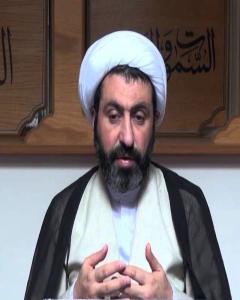 In this paper we will review and briefly discuss different methodologies among Muslim scholars in studying spirituality in general and morality (akhlaq) in particular. In general, we can classify the attitudes of scholars into three main approaches:
In this paper we will review and briefly discuss different methodologies among Muslim scholars in studying spirituality in general and morality (akhlaq) in particular. In general, we can classify the attitudes of scholars into three main approaches:
Bayt al-Mal and the Distribution of Zakat
- Published at
-
- Author:
- Mahmood Namazi
 The Bayt al-Mal (literally meaning the House for Money, is used as an equivalent for the Treasury House where public fund is kept) is an Islamic concept built upon three main factors: wealth, trust and socio-economic justice. It is clear that attainment of socio-economic justice is an immediate objective of the Bayt al-Mal.
The Bayt al-Mal (literally meaning the House for Money, is used as an equivalent for the Treasury House where public fund is kept) is an Islamic concept built upon three main factors: wealth, trust and socio-economic justice. It is clear that attainment of socio-economic justice is an immediate objective of the Bayt al-Mal.
Meaning of Miracle
- Published at
-
- Author:
- Sayyid Sa’eed Akhtar Rizvi
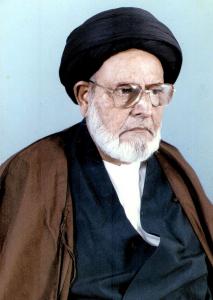 'Mujiza' (معجزة) in Arabic language means 'that which disables,' 'that which people are unable to do-' In Islamic terminology, 'Mujiza' (معجزة) means 'Such act which people are unable to do and Allah shows it on the hands of a prophet or Imam to prove the prophethood of that Nabi or Imamat of that Imam.
'Mujiza' (معجزة) in Arabic language means 'that which disables,' 'that which people are unable to do-' In Islamic terminology, 'Mujiza' (معجزة) means 'Such act which people are unable to do and Allah shows it on the hands of a prophet or Imam to prove the prophethood of that Nabi or Imamat of that Imam.
Radical Self-Love
- Published at
-
- Author:
- Sayyid Mujtaba Musavi Lari
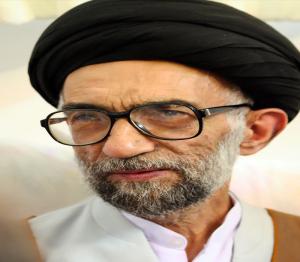 Coveting material things is a basic human nature. It is an instinct that was implemented in man on the day he was born. It is the motive which allows him to struggle continuously and preserve himself. As a result of this instinct, we notice that man avoids that which harms him and is attracted by advantageous matters. Therefore, he is a hostage of the psychological phenomenon when he advances. This phenomenon plays a great role in advancing the level of human civilization.
Coveting material things is a basic human nature. It is an instinct that was implemented in man on the day he was born. It is the motive which allows him to struggle continuously and preserve himself. As a result of this instinct, we notice that man avoids that which harms him and is attracted by advantageous matters. Therefore, he is a hostage of the psychological phenomenon when he advances. This phenomenon plays a great role in advancing the level of human civilization.
Preliminaries of Prayer
- Published at
-
- Author:
- Muhsin Qara’ati
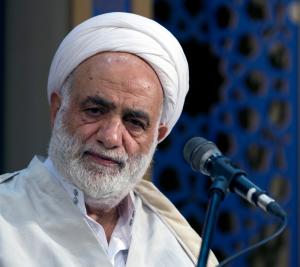 To embark on the constructive form of worship, i.e. prayer, we shall cite a set of physical and spiritual preliminaries in terms of cleanliness and purity of body and soul as well as other preparations.
To embark on the constructive form of worship, i.e. prayer, we shall cite a set of physical and spiritual preliminaries in terms of cleanliness and purity of body and soul as well as other preparations.
The Holy Quran and Hadith on Music
- Published at
-
- Author:
- A. H. Sheriff
 After briefly explaining the evil effects of Music and dance, now time has come to give here some of the ayats of the Qur’an and some of the traditions of the Holy Prophet (S) and Imams (a.s.) on this subject.
After briefly explaining the evil effects of Music and dance, now time has come to give here some of the ayats of the Qur’an and some of the traditions of the Holy Prophet (S) and Imams (a.s.) on this subject.
Taqwa: Consciousness of Allah
- Published at
-
- Author:
- Shaykh Nasir Makarim Shirazi
 It has been narrated by Anas b. Malik that he said, “I heard the Messenger of Allah (S) say, 'O' People! Have Taqwa of Allah as is worthy of Him; strive in gaining His pleasure; have certainty that the world is temporal and that the Next Life is everlasting; strive for the life after death such that it could be said about you that it is as if you were never in this world and so that it could be said about you that it is as if you have been in the next life for time memorial.
It has been narrated by Anas b. Malik that he said, “I heard the Messenger of Allah (S) say, 'O' People! Have Taqwa of Allah as is worthy of Him; strive in gaining His pleasure; have certainty that the world is temporal and that the Next Life is everlasting; strive for the life after death such that it could be said about you that it is as if you were never in this world and so that it could be said about you that it is as if you have been in the next life for time memorial.
Social Justice in Islam
- Published at
-
- Author:
- Shaykh Muhsin Qara'ati
 The purpose of our discussion on social justice is to mention those verses of the Holy Qur'an and the traditions through which the Holy Qur'an and our infallible Imams have given lessons of equality of mankind in the eyes of the law and of preservation of their rights. They have also forbidden undue discrimination, cruelties and exploitation. Apart from this we have cited the examples of just distribution of wealth, Islamic brotherhood and fraternity set by the Holy Prophet of Islam and his Holy Ahlul Bayt (peace be on them).
The purpose of our discussion on social justice is to mention those verses of the Holy Qur'an and the traditions through which the Holy Qur'an and our infallible Imams have given lessons of equality of mankind in the eyes of the law and of preservation of their rights. They have also forbidden undue discrimination, cruelties and exploitation. Apart from this we have cited the examples of just distribution of wealth, Islamic brotherhood and fraternity set by the Holy Prophet of Islam and his Holy Ahlul Bayt (peace be on them).
The Faithful Tested with Calamities
- Published at
-
- Author:
- Sheikh Zayn ad-Din Ali ibn Muhammad al-Jabil Amili
 One who is afflicted by a calamity should remember that calamities, trials and tribulations are all sent by Allah to those about whom He cares, those whom He likes and towards whom He directs His attention. Before one confirms this reality by looking into the Qur'an and Sunnah, he must observe those who are afflicted in this temporal abode: He will then find out that the most afflicted of all people are those of goodness and righteousness after the prophets and messengers of Allah. Sacred Qur'anic verses inform you of the same:
One who is afflicted by a calamity should remember that calamities, trials and tribulations are all sent by Allah to those about whom He cares, those whom He likes and towards whom He directs His attention. Before one confirms this reality by looking into the Qur'an and Sunnah, he must observe those who are afflicted in this temporal abode: He will then find out that the most afflicted of all people are those of goodness and righteousness after the prophets and messengers of Allah. Sacred Qur'anic verses inform you of the same:
The Aversion For Death
- Published at
-
- Author:
- Imam Khomeini
 With my continuous sanad reaching up to the pillar of Islam and its reliable authority, Muhammad ibn Ya’qub al-Kulayni, from Muhammad ibn Yahya, from Ahmad ibn Muhammad, from some of his teachers, from al-Hasan ibn ‘Ali ibn Abi ‘Uthman, from Wasil, from ‘Abd Allah ibn Sinan, from Abu ‘Abd Allah (A) that he said: A man came to Abu Dharr and said to him, “O Abu Dharr, what is wrong with us that we abhor death?” Abu Dharr replied, “That is because you have built and cultivated your world and ruined your Hereafter. So, you hate to be moved from prosperity towards desolation.” He was asked, “How do you see our entry into God’s presence?” Abu Dharr replied, “As to the good-doer amongst you, he is like someone returning to his family after a (long) absence. As to the evil-doer amongst you, he is like an absconding slave being returned to his master.” He was asked, “How do you see our situation before God?” Abu Dharr replied, “Evaluate your deeds in view of the Qur’anic criterion. Verily God says: Surely, the pious shall be in bliss and the profane shall he in a fiery furnace (82:12-3). The Imam (A) added: Thereat, the man said, “Then, where is the mercy of God?” Abu Dharr replied, “The mercy of God is near to the good-doers.”
With my continuous sanad reaching up to the pillar of Islam and its reliable authority, Muhammad ibn Ya’qub al-Kulayni, from Muhammad ibn Yahya, from Ahmad ibn Muhammad, from some of his teachers, from al-Hasan ibn ‘Ali ibn Abi ‘Uthman, from Wasil, from ‘Abd Allah ibn Sinan, from Abu ‘Abd Allah (A) that he said: A man came to Abu Dharr and said to him, “O Abu Dharr, what is wrong with us that we abhor death?” Abu Dharr replied, “That is because you have built and cultivated your world and ruined your Hereafter. So, you hate to be moved from prosperity towards desolation.” He was asked, “How do you see our entry into God’s presence?” Abu Dharr replied, “As to the good-doer amongst you, he is like someone returning to his family after a (long) absence. As to the evil-doer amongst you, he is like an absconding slave being returned to his master.” He was asked, “How do you see our situation before God?” Abu Dharr replied, “Evaluate your deeds in view of the Qur’anic criterion. Verily God says: Surely, the pious shall be in bliss and the profane shall he in a fiery furnace (82:12-3). The Imam (A) added: Thereat, the man said, “Then, where is the mercy of God?” Abu Dharr replied, “The mercy of God is near to the good-doers.”
The Classification of Sciences
- Published at
-
- Author:
- Imam Khomeini
 With my chain of transmission reaching up to the best and the earliest of traditionists, Muhammad ibn Ya’qub al-Kulayni (R) from Muhammad ibn al-Hasan and ‘Ali ibn Muhammad, from Sahl ibn Ziyad, from Muhammad ibn ‘Isa-, from ‘Ubayd Allah ibn ‘Abd Allah al Dihqan, from Durust al-Wasiti, from Ibrahim ibn ‘Abd al-Hamid, from Abu al-Hasan Musa (A) that he said: The Messenger of Allah (S) once entered the mosque where there were a group of people surrounding a man. “Who is that?” inquired the Prophet (S). He was told, “He is an Allamah, (i.e. a very learned man).” “What is an Allamah?” asked the Prophet (S). They told him, “He is the most learned of men regarding Arab genealogies, past episodes, the days of the Jahiliyyah and Arabic poetry.” The Prophet (S) said, “That is a knowledge whose ignorance does not harm one nor is its possession of any benefit to one.” Then the Prophet (S) declared, “Verily, knowledge consists of these three: the firm sign, the just duty and the established sunnah. All else is superfluous.” 1
With my chain of transmission reaching up to the best and the earliest of traditionists, Muhammad ibn Ya’qub al-Kulayni (R) from Muhammad ibn al-Hasan and ‘Ali ibn Muhammad, from Sahl ibn Ziyad, from Muhammad ibn ‘Isa-, from ‘Ubayd Allah ibn ‘Abd Allah al Dihqan, from Durust al-Wasiti, from Ibrahim ibn ‘Abd al-Hamid, from Abu al-Hasan Musa (A) that he said: The Messenger of Allah (S) once entered the mosque where there were a group of people surrounding a man. “Who is that?” inquired the Prophet (S). He was told, “He is an Allamah, (i.e. a very learned man).” “What is an Allamah?” asked the Prophet (S). They told him, “He is the most learned of men regarding Arab genealogies, past episodes, the days of the Jahiliyyah and Arabic poetry.” The Prophet (S) said, “That is a knowledge whose ignorance does not harm one nor is its possession of any benefit to one.” Then the Prophet (S) declared, “Verily, knowledge consists of these three: the firm sign, the just duty and the established sunnah. All else is superfluous.” 1
The Pursuit of Knowledge
- Published at
-
- Author:
- Imam Khomeini
 With my chain of transmitters reaching up to the thiqat al-Islam Muhammad ibn Ya’qub al-Kulayni, from Muhammad ibn al-Hasan and ‘Ali ibn Muhammad, from Sahl ibn Ziyad and Muhammad ibn Yahya, from Ahmad ibn Muhammad, from Ja’far ibn Muhammad al-‘Ash’ari, from ‘Abd Allah ibn Maymun al-Qaddah; and from ‘Ali ibn Ibrahim, from his father, from Hammad ibn ‘Isa, from al-Qaddah, from Abu ‘Abd Allah (A) that he said: The Messenger of Allah (S) said, “One who proceeds on a path in the pursuit of knowledge, God makes him proceed therewith on a path to the Garden (Paradise). And, verily, the angels spread their wings for the seekers of knowledge out of delight. Verily, every creature of the heaven and the earth asks forgiveness for the seeker of knowledge, even the fish in the sea. The merit of the ‘alim (the learned) over the ‘abid (the devout) is like the merit of the moon over the stars on a full-moon night. The learned are the heirs of the prophets, for the prophets did not leave behind a legacy of wealth but that of knowledge. So whoever partakes of it derives a plenteous benefit.”
With my chain of transmitters reaching up to the thiqat al-Islam Muhammad ibn Ya’qub al-Kulayni, from Muhammad ibn al-Hasan and ‘Ali ibn Muhammad, from Sahl ibn Ziyad and Muhammad ibn Yahya, from Ahmad ibn Muhammad, from Ja’far ibn Muhammad al-‘Ash’ari, from ‘Abd Allah ibn Maymun al-Qaddah; and from ‘Ali ibn Ibrahim, from his father, from Hammad ibn ‘Isa, from al-Qaddah, from Abu ‘Abd Allah (A) that he said: The Messenger of Allah (S) said, “One who proceeds on a path in the pursuit of knowledge, God makes him proceed therewith on a path to the Garden (Paradise). And, verily, the angels spread their wings for the seekers of knowledge out of delight. Verily, every creature of the heaven and the earth asks forgiveness for the seeker of knowledge, even the fish in the sea. The merit of the ‘alim (the learned) over the ‘abid (the devout) is like the merit of the moon over the stars on a full-moon night. The learned are the heirs of the prophets, for the prophets did not leave behind a legacy of wealth but that of knowledge. So whoever partakes of it derives a plenteous benefit.”
Meaning of Ismat
- Published at
-
- Author:
- Sayyid Sa’eed Akhtar Rizvi
 ‘Ismat’ literally means 'Protection ' In Shia terminology it means ‘A special Grace (Lutf) of Allah to a person which enables the said person to abstain from sins by his own free will.' Such a person is called 'Maasum.’This Lutf (grace) does not make the Maasum person incapable of committing sin. He refrains from sins and mistakes by his own power and will.
‘Ismat’ literally means 'Protection ' In Shia terminology it means ‘A special Grace (Lutf) of Allah to a person which enables the said person to abstain from sins by his own free will.' Such a person is called 'Maasum.’This Lutf (grace) does not make the Maasum person incapable of committing sin. He refrains from sins and mistakes by his own power and will.
Meaning of ‘Nabi’ and ‘Rasul’
- Published at
-
- Author:
- Sayyid Sa’eed Akhtar Rizvi
 The word ‘Nabi’ (نبي) is derived from ‘Nubuwwat’ (نبوة). ‘Nubuwwat’ means ‘to be high’ and, thus ‘Nabi’means a ‘High person’: high in the presence of Allah, The word ‘Nabi’ shows the exalted position of the prophet which he enjoys in the presence of God. Another interpretation of 'Nabi! is that it is derived from 'Nubu-at i.e., to prophesize. According to this interpretation 'Nabi' means one who prophesizes. The word 'Rasul' (رسول) is derived from 'Risalat' (رسالة).
The word ‘Nabi’ (نبي) is derived from ‘Nubuwwat’ (نبوة). ‘Nubuwwat’ means ‘to be high’ and, thus ‘Nabi’means a ‘High person’: high in the presence of Allah, The word ‘Nabi’ shows the exalted position of the prophet which he enjoys in the presence of God. Another interpretation of 'Nabi! is that it is derived from 'Nubu-at i.e., to prophesize. According to this interpretation 'Nabi' means one who prophesizes. The word 'Rasul' (رسول) is derived from 'Risalat' (رسالة).
Slander, A Society Polluted With Sins
- Published at
-
- Author:
- Sayyid Mujtaba Musavi Lari
 There is no doubt that at the present time societies suffer from various types of spiritual deviations and psychological corruption, and have failed to develop their manners at the same pace that they were able to secure material luxuries for themselves. Such societies face a great number of acute diseases which have overwhelmed the ocean of life with pains as days go by. Those who earnestly struggle to avoid pains end up intoxicated with sins and in search of refuge in the lap of lowliness in order to their spiritual pains and anxieties. Yet, the sun of felicity shall never beam its bright rays lives.
There is no doubt that at the present time societies suffer from various types of spiritual deviations and psychological corruption, and have failed to develop their manners at the same pace that they were able to secure material luxuries for themselves. Such societies face a great number of acute diseases which have overwhelmed the ocean of life with pains as days go by. Those who earnestly struggle to avoid pains end up intoxicated with sins and in search of refuge in the lap of lowliness in order to their spiritual pains and anxieties. Yet, the sun of felicity shall never beam its bright rays lives.


